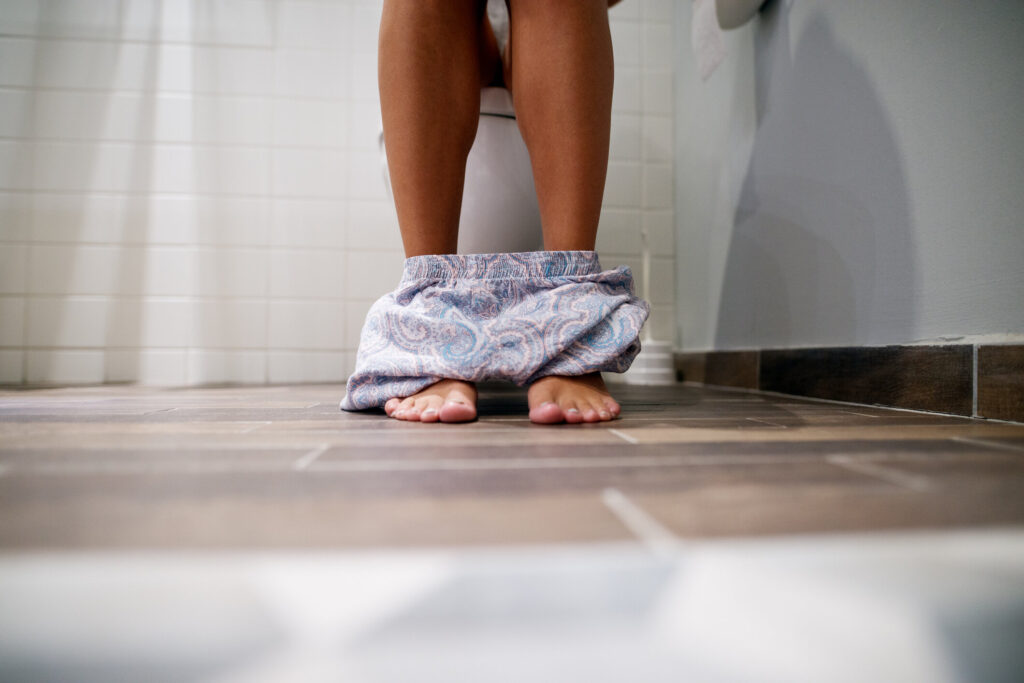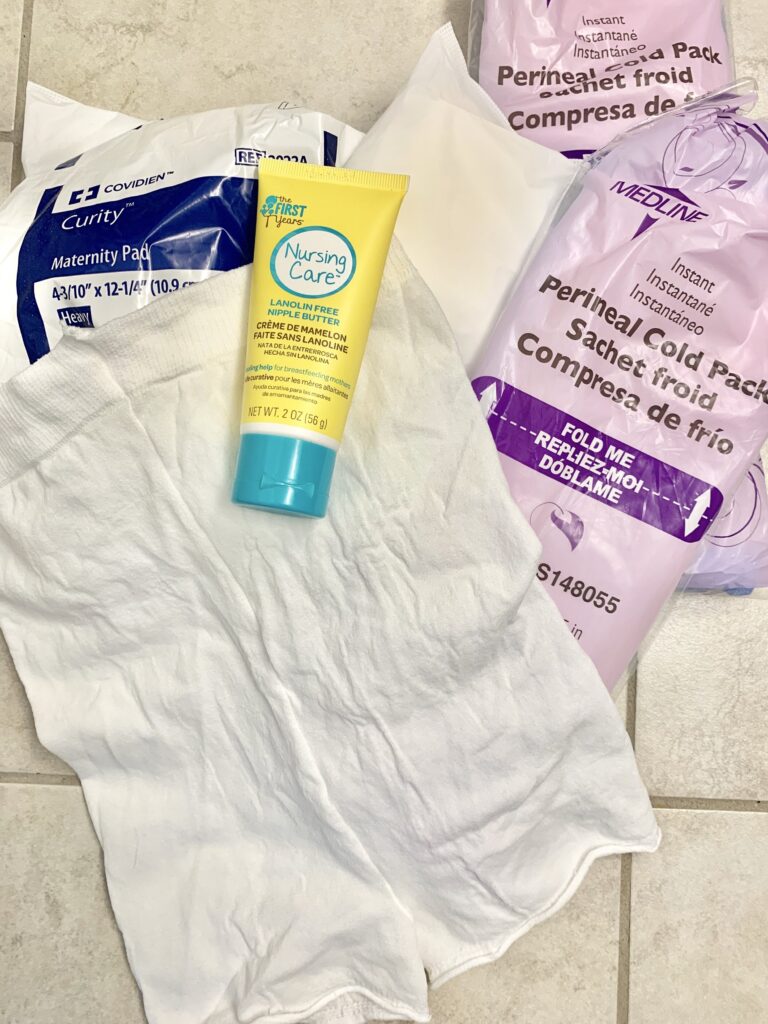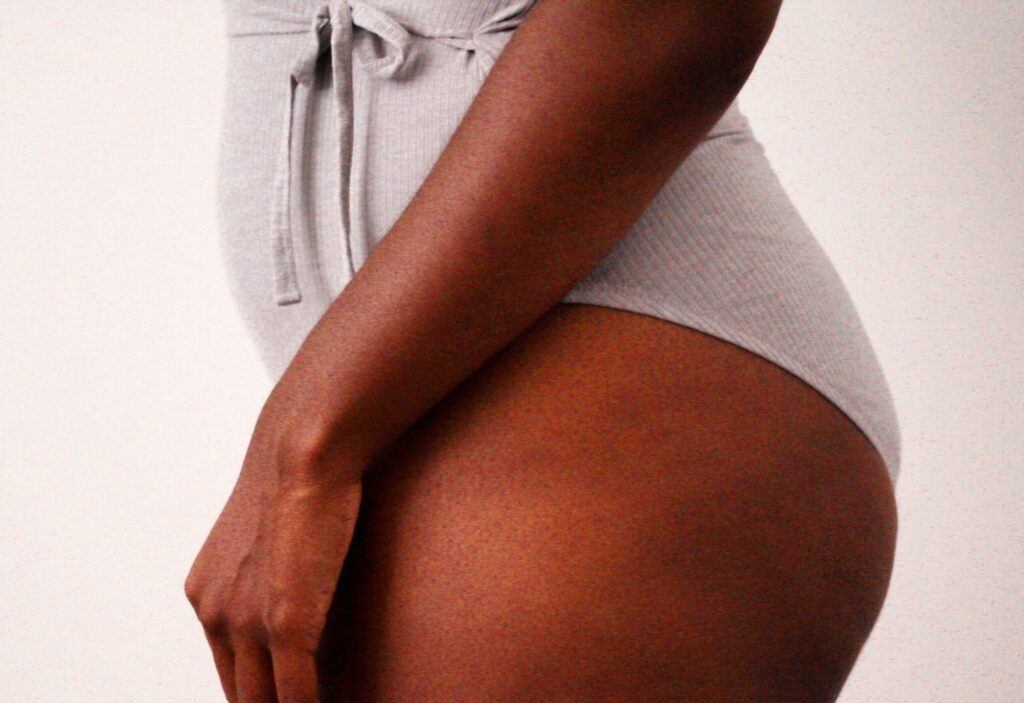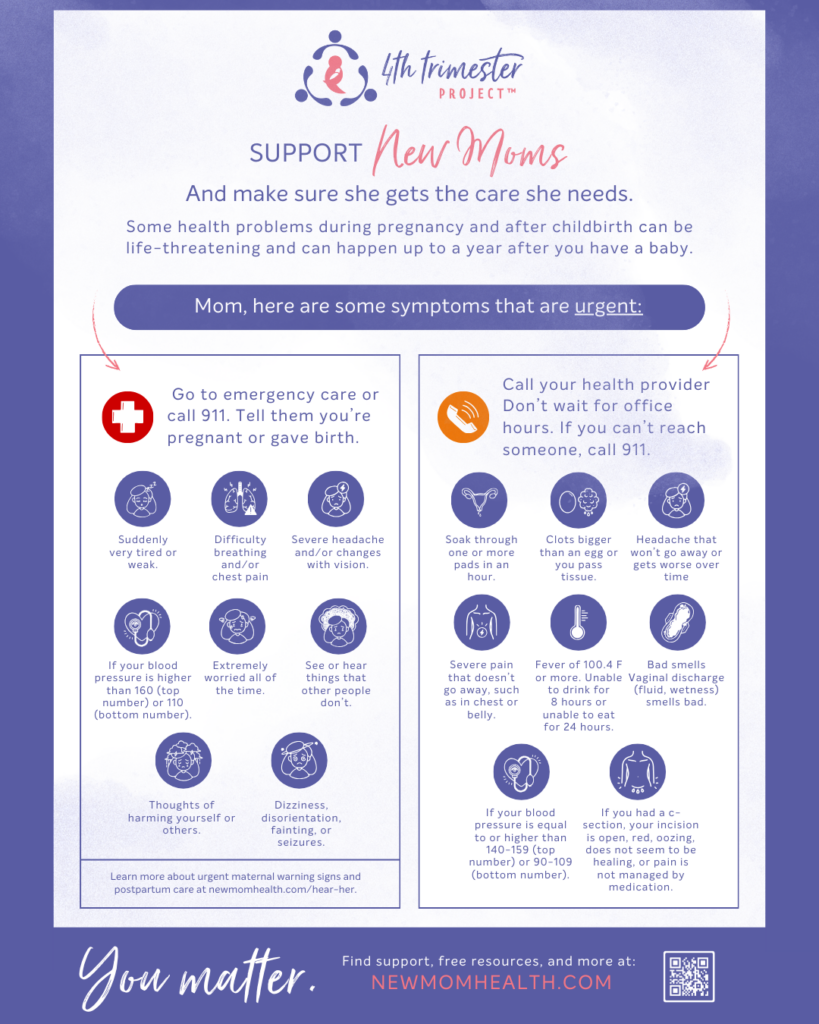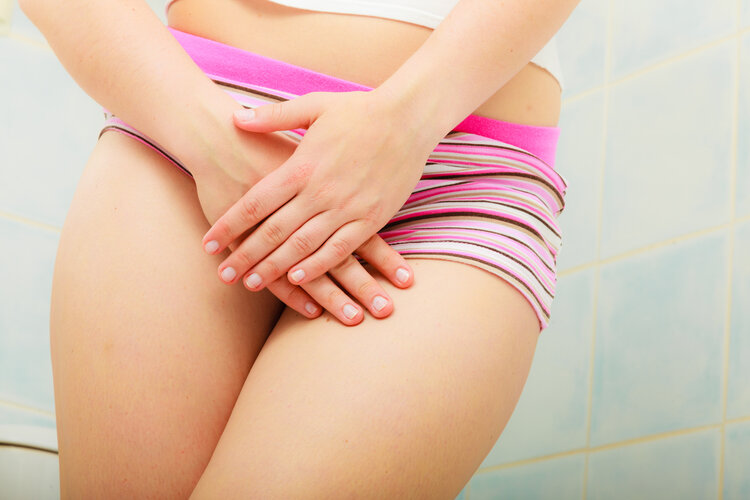
A lower sex drive after childbirth is common. More than 50% of women at 3 months postpartum and 30% at 6 months postpartum experience less interest in sex than they did before. Being tired, stress, lack of time, infant care needs, feelings around body image, plus physical discomforts often doesn’t result in feeling sexy!
Pain in and around the vagina (perineal pain) and low sex drive are all common among women after the birth of a baby. Postpartum genital pain affects 50-60% of women 6-7 weeks after delivery, 30% of women at 3 months postpartum, and 17% of women 6 months after delivery. Scar tissue around the opening of the vagina from an episiotomy or tear is a common cause of perineal pain. For mothers who are making milk, lactation lowers levels of the hormone estrogen, reducing the lubrications in your vagina. A water or silicone-based lubricant can be a huge help. Of importance, if using condoms for birth control then water-based lubricants should be used.
Risk factors for perineal and genital pain include: infection, an episiotomy or wound repair separation, tears to your bottom during childbirth, pelvic organ prolapse (when certain organs like your uterus, bladder, intestine, rectum, or vagina slip out of place and bulge into the vaginal canal due to weakened muscles and tissues), tight pelvic floor muscles, and breastfeeding, which can cause vaginal dryness.
Even though physical pain and complicated emotions are common alongside a lower sex drive, these are topics that women rarely talk about and health care providers rarely address. It is time for this to change! The focus of health care should be your needs and preferences, to support your health and wellness.
Things to do that might help:
- Talk with your partner about how you are feeling, including about sex. He or she might be feeling the same way. There are many ways you can feel connected to each other without having intercourse. If this topic becomes a problem in the relationship, talk to each other, with your health care provider and/or a therapist for support.
- Tell your health care provider about how you are feeling. With your consent, she can gently examine your bottom to determine causes of physical pain.
- Sometimes, the muscles that hold up the pelvic floor can spasm, causing pain. A pelvic floor physical therapist can evaluate the muscles and provide exercises to help.
- Consider using a lubricant when you are interested in having sex. If you are using condoms you should pick a water-based lubricant.
- If you’re ready to be intimate, but worried about pain with penetration, be creative! You and your partner can enjoy each other without having vaginal intercourse.
- When women have scar tissue in their pelvic floor or other conditions, treatment may improve the concerns. Perineoplasty is a surgery performed to repair a tear that did not heal well. Transcutaneous electrical nerve stimulation is a device that relieves pain by applying a gentle electrical current to nerves in the skin. Much more research is needed to advance the fields of pelvic floor physical therapy and access to such services.
Resources to Explore:
- American College of Obstetricians and Gynecology – When Sex is Painful
- The Sex / Family Planning / Contraception section explores more

